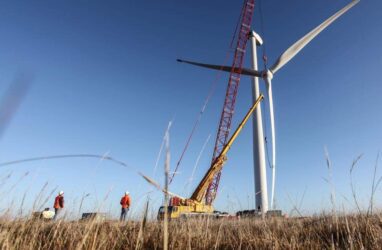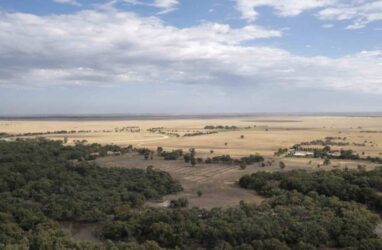Feed aggregator
German carbon removals startup raises over €10 mln
Research highlights Australia’s rampant deforestation rates
South Korea releases 2024 carbon auction schedule
Australia Market Roundup: Opposition Coalition sketches nuclear energy policy, ACCU projects revoked
More than 400,000 songbirds killed by organised crime in Cyprus
Report links rise in birds trapped for human consumption to cuts in anti-poaching resources in area of British military base
More than 400,000 songbirds were trapped and killed in Cyprus last autumn as part of a recent increase in wildlife crime, according to a new report.
Organised crime networks use decoys and speakers playing birdsong to lure these small birds – including garden favourites such as robins and sparrows – to nest in bushes or orchards, where they catch them with “mist” nets or branches covered in glue. They are then sold via the hidden market to restaurants to be eaten as a local dish called “ambelopoulia”, which consists of pickled or boiled songbirds.
Continue reading...Cabinet minister pays damages over Hamas claim
Huge housing costs make us slaves to our jobs and unsustainable growth. But there’s another way
NSW promises to fast track wind, solar and battery approvals after internal changes
The post NSW promises to fast track wind, solar and battery approvals after internal changes appeared first on RenewEconomy.
Colorado legislators propose cap-and-trade, ban on new oil and gas wells
Taiwan carbon exchange signs MoU to source carbon credits from Eswatini
PREVIEW: Washington’s Q1 carbon allowance auction mired in uncertainty, discouraging speculator bidders
Environmental products trading head departs European utility for Canadian power and gas firm
Redflow looks deeper into making batteries at home, backed by Qld government strategy and grant
The post Redflow looks deeper into making batteries at home, backed by Qld government strategy and grant appeared first on RenewEconomy.
Connecticut legislators propose wide-ranging climate bill
Renewable developer rating scheme: What is it, and will it solve our social licence problem?
 Renewable energy developers are about to get ratings. How will it work, and what will it do?
Renewable energy developers are about to get ratings. How will it work, and what will it do?
The post Renewable developer rating scheme: What is it, and will it solve our social licence problem? appeared first on RenewEconomy.
New Hampshire legislators target nature-based voluntary carbon credits
Growing amount of research shows EU can reach its heat pump targets with right policy -report
South Dakota carbon pipeline bills inch closer to law
Australia’s third offshore wind zone shrinks dramatically to avoid rock lobsters
The post Australia’s third offshore wind zone shrinks dramatically to avoid rock lobsters appeared first on RenewEconomy.
EVs are still too expensive for most Australians – so why are some carmakers and the Coalition standing in the way | Adam Morton
We are buying more electric and plug-in hybrid cars – 8.5% of all new sales last year – and no one’s weekend has ended. But that’s barely half of the global sales proportion
- Follow our Australia news live blog for latest updates
- Get our morning and afternoon news emails, free app or daily news podcast
The number of electric vehicles sold in Australia is increasing, but let’s be blunt: battery power cars are still unattainable for most people. Most models are expensive, and there are often long waiting lists.
Nearly 100,000 EVs and plug-in hybrid cars were sold across the country last year – 8.5% of all new sales. The good news is it was more than double the figure the previous year, and no one’s weekend ended as a result. But it was still barely half of the global sales proportion of 15.8%. In climate terms, we’re not pulling our weight.
Continue reading...




